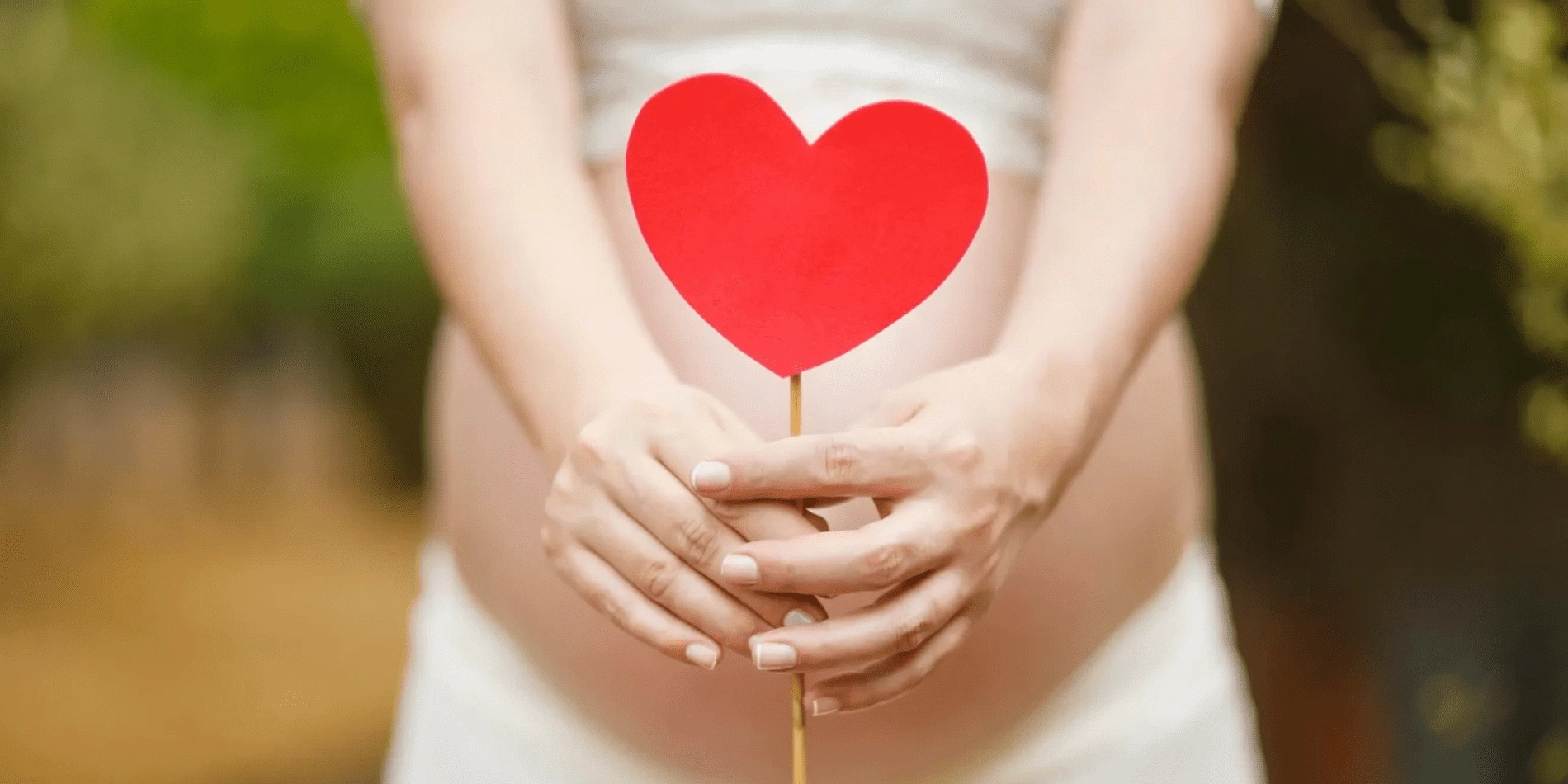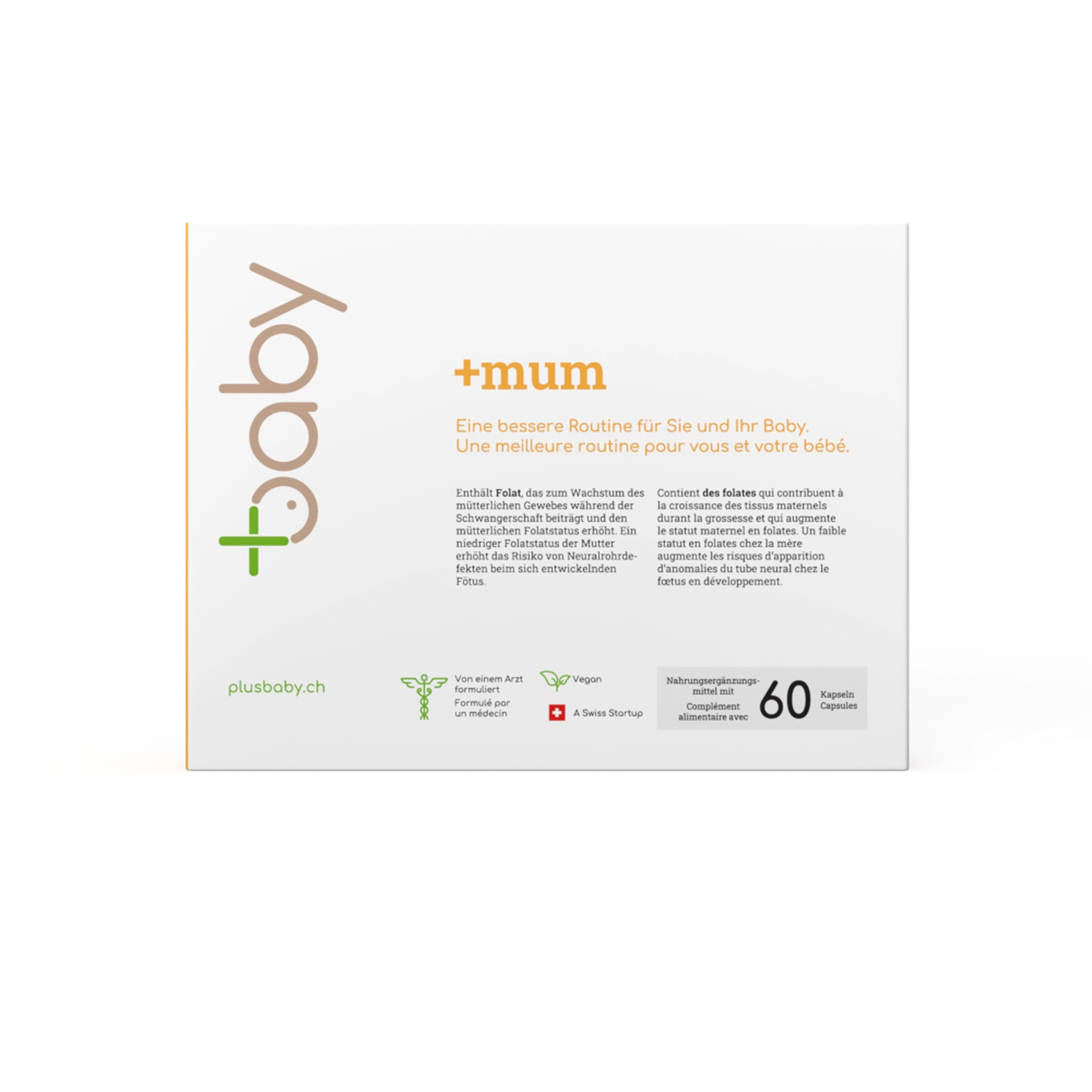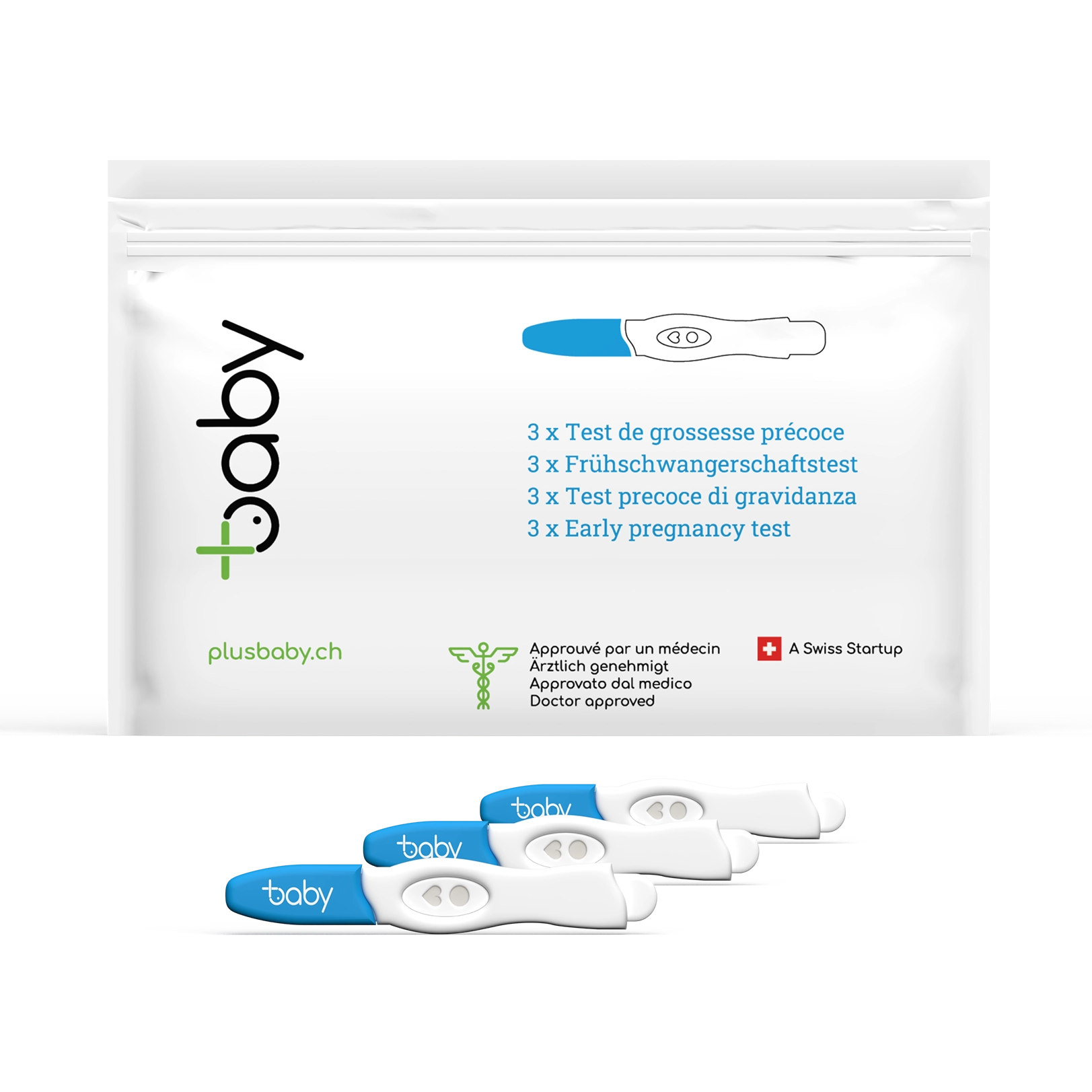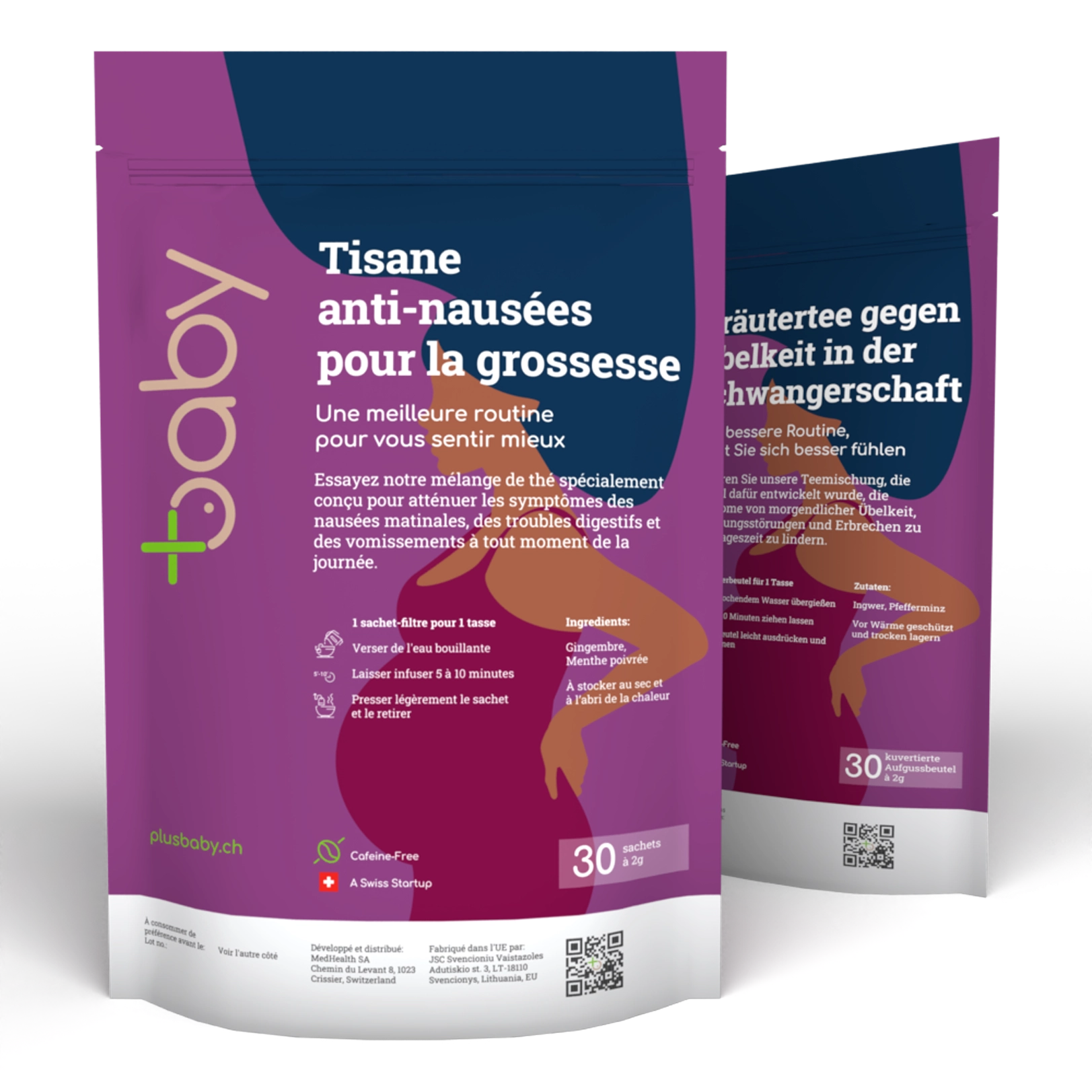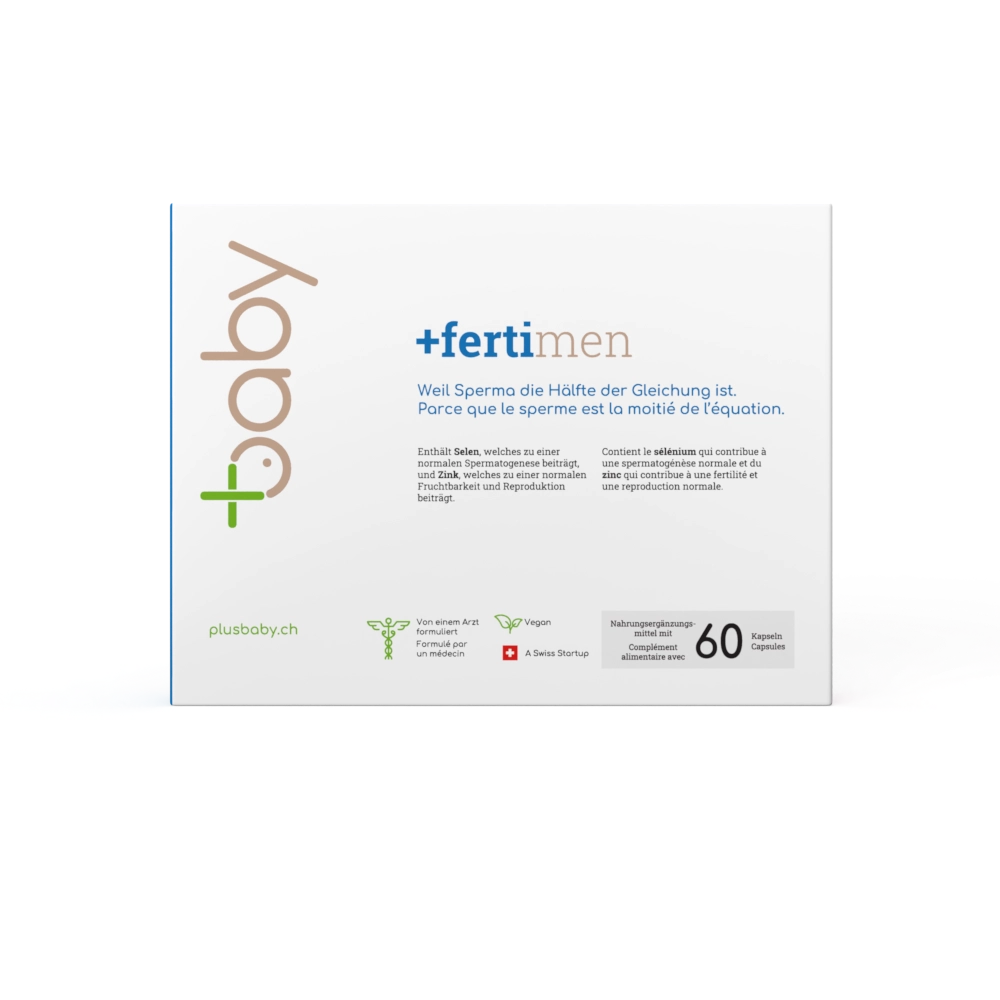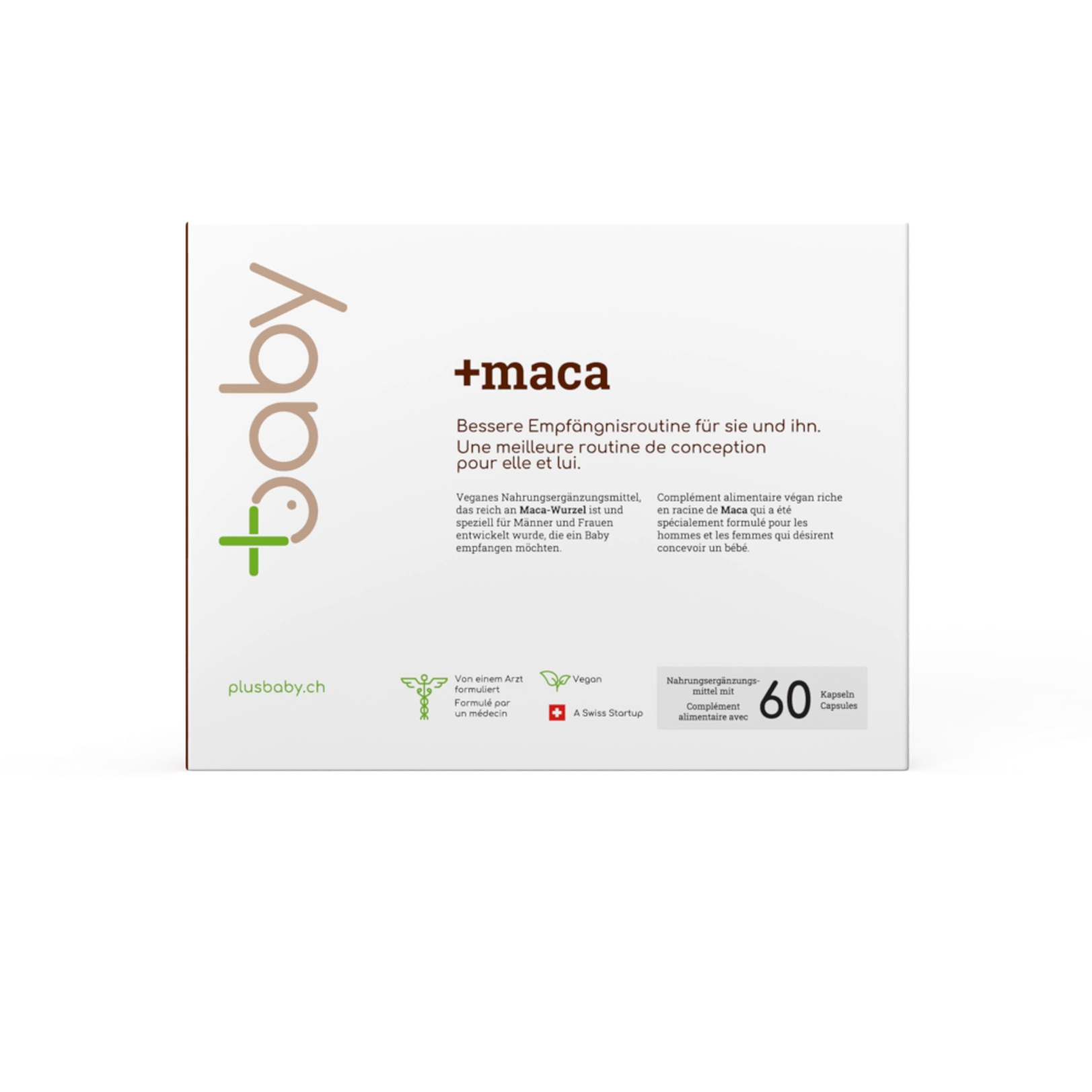Many changes occurred during the first trimester of pregnancy
Everyone’s journey through pregnancy is different. The first trimester of pregnancy is the time when you have to adapt to the changes in your body, your hormones and your experiences. The most important thing you can do is find out what to expect. PlusBaby has put together all the useful information for you during this first trimester of pregnancy.
What is the first trimester of pregnancy?
The first trimester of pregnancy runs from the 1st to the end of the 12th week of pregnancy, and begins on the first day of your period. Most women discover that they are pregnant between the fourth and seventh week of their pregnancy. It is therefore likely that you will spend half of the first trimester without knowing that you are pregnant! That’s why it’s advisable to start taking prenatal vitamins several months before you try to conceive, and not just after you find out you’re pregnant.
CHF 39.90 Original price was: CHF 39.90.CHF 19.90Current price is: CHF 19.90.
After the first three months come the second and third trimesters. The second trimester takes place between weeks 13 and 26 of pregnancy, and the third trimester between weeks 27 and 40, until the baby is born.
How can you tell if you’re pregnant?
The only definitive way to know if you are pregnant is to take a pregnancy test and consult a doctor. However, there are certain warning signs that you may be pregnant. A delay in your period, intense tiredness, an increase in the size of your breasts or morning sickness may be the first signs of pregnancy.
There is a reliable pregnancy indicator present in the body. It is the hormone human chorionic gonadotropin, also known as hCG. It is this hormone that is detected in your urine when you take a pregnancy test. So what does this hormone do?
What is the hCG hormone during pregnancy?
Every month, during the ovulation period, the egg travels down the Fallopian tube to meet a spermatozoon. If the sperm is present, fertilisation can take place! The egg continues its journey for 4 to 5 days, gently descending into the uterus before implanting. This implantation triggers the production of the hormone chorionic gonadotropin (hCG), and it is this hormone that is detected with a home pregnancy test.
The hCG hormone, present only in pregnant women, is secreted by the placenta when the embryo attaches itself to the uterine wall: this is known as implantation. The role of hCG is to maintain ovarian secretions, or what is also known as the corpus luteum, to prevent the return of menstruation and thus maintain the survival of the egg.
The baby during the first trimester of pregnancy
The egg is fertilised by the sperm at the end of the second week, and this is also when the sex of the baby is determined.
Although it may not be obvious from the outside, the baby grows faster during the first trimester than at any other time during the pregnancy.
At around six weeks into the first trimester, the baby begins to develop bones, hair and nails. Many things develop around the eighth week of pregnancy, including the digestive system, eyesight, sense of touch and brain.
In the 5th week, the baby’s heart begins to beat. His head begins to take shape, and his arms and legs slowly start to appear. At 10 weeks, the baby takes on a more human appearance. The eyes, mouth and separate little fingers become more noticeable. By this time, the baby’s bones are forming and all the parts of his body are in place and ready to develop more quickly.
The first six to eight weeks are a crucial period for the child’s development, when the amount and type of vitamins your body needs change.
Although a healthy pregnancy diet can help you cover all your nutrient requirements, you may sometimes need a helping hand. For example, your body needs more folic acid and iron during pregnancy than it would normally. It can be difficult to get enough of these two nutrients from food, so prenatal vitamins can help. Some research indicates that taking prenatal vitamins can also reduce the risk of your baby being born with a low birth weight, and folic acid (vitamin B9) helps prevent neural tube defects, serious problems of the spinal cord and brain.
Developed with the help of gynaecologists and doctors, our extensively researched +Mum supplement is a high-quality, antioxidant-rich food supplement formulated for mums during pregnancy and breastfeeding.
Your body during the first trimester of pregnancy
During the first trimester of pregnancy, it’s unlikely that anyone will be able to tell that you’re pregnant. In fact, many parents wait until the end of the first trimester to tell their friends and family.
You may notice a number of physical changes in your body. Nausea and vomiting are the most common symptoms of the first trimester. Around 75% of pregnant women experience nausea, and 50% experience vomiting. These symptoms begin around the 3rd week of pregnancy and, for the vast majority, cease towards the end of the first trimester. However, some women may experience them as late as the 20th week of pregnancy and even right up to the birth.
To help you, we’ve created an herbal tea specially for pregnancy to relieve morning sickness and digestive problems during pregnancy.
Digestive aversions are a very common symptom in pregnant women. And this is true throughout pregnancy. Craving sweet or savoury foods, fruit or red meat. Listen to your body and give it what it wants, as long as it doesn’t damage your health.
These changes are all linked to new hormones being secreted by your body to support the development and growth of your baby.
To support your baby’s development, make sure you’re getting enough protein, folic acid, calcium and iron, and follow a balanced diet.
As you begin to put on weight, your appetite also changes. It’s your hormones acting up again! During a first pregnancy, a woman’s belly may be slow to appear as the uterus slowly expands. But for a woman who has already been pregnant, from the 3rd month your belly can start to show. So make allowances for yourself and welcome these changes.
Hormones and mental health during the first trimester of pregnancy.
Pregnancy is accompanied by hormonal changes. Many women experience mood swings, excitement, moments of depression and stress. These mood swings are due to significant changes in your hormone levels, which affect your neurotransmitters. More specifically, oestrogen and progesterone levels soar during the first 12 weeks of pregnancy and directly affect your levels of serotonin, a hormone that has a major influence on your mood. Whatever your feelings, remember that you’re not alone and it’s all part of the learning curve.
We all go through new emotions when faced with a new situation. Pregnancy is an important life event. Talk about it with your partner, a friend or even a professional. This will help you feel more serene during those first emotional months.
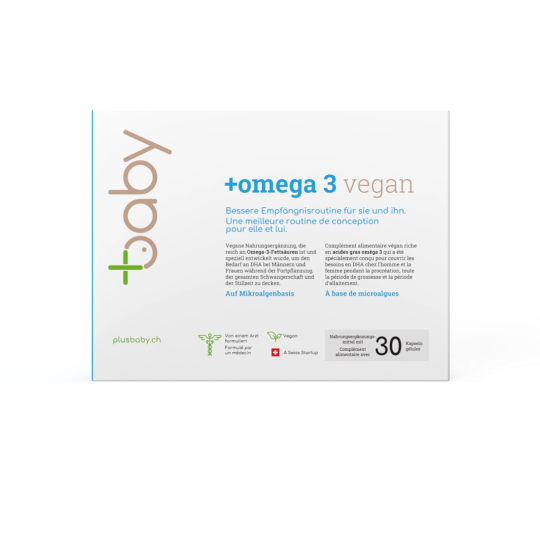
CHF 39.90 Original price was: CHF 39.90.CHF 19.90Current price is: CHF 19.90.

